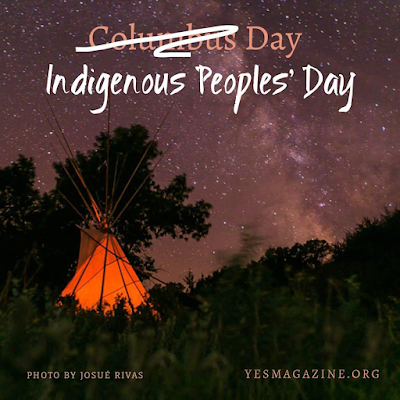The "Honorable Harvest":
Lessons From an Indigenous Tradition of Giving Thanks
The Honorable Harvest, a practice both ancient and urgent, applies to every exchange between people and the Earth. Its protocol is not written down, but if it were, it would look something like this:
Ask permission of the ones whose lives you seek. Abide by the answer.
Never take the first. Never take the last.
Harvest in a way that minimizes harm.
Take only what you need and leave some for others.
Use everything that you take.
Take only that which is given to you.
Share it, as the Earth has shared with you.
Be grateful.
Reciprocate the gift.
Sustain the ones who sustain you, and the Earth will last forever.
Though we live in a world made of gifts, we find ourselves harnessed to institutions and an economy that relentlessly ask, “What more can we take from the Earth?” In order for balance to occur, we cannot keep taking without replenishing. Don’t we need to ask, “What can we give?”
The Honorable Harvest is a covenant of reciprocity between humans and the land. This simple list may seem like a quaint prescription for how to pick berries, but it is the root of a sophisticated ethical protocol that could guide us in a time when unbridled exploitation threatens the life that surrounds us. Western economies and institutions enmesh us all in a profoundly dishonorable harvest. Collectively, by assent or by inaction, we have chosen the policies we live by. We can choose again.
The Theft Outright
after FrostWe were the land's before we were.Or the land was ours before you were a land.Or this land was our land, it was not your land.We were the land before we were people,loamy roamers rising, so the stories go,or formed of clay, spit into with breath reeking soul—What's America, but the legend of Rock 'n' Roll?Red rocks, blood clots bearing boys, blood sandsswimming being from women's hands, we originate,originally, spontaneous as hemorrhage.Un-possessing of what we still are possessed by,possessed by what we now no more possess.We were the land before we were people,dreamy sunbeams where sun don't shine, so the stories go,or pulled up a hole, clawing past ants and roots—Dineh in documentaries scoff DNA evidence off.They landed late, but canyons spoke them home.Nomadic Turkish horse tribes they don't know.What's America, but the legend of Stop 'n' Go?Could be cousins, left on the land bridge,contrary to popular belief, that was a two-way toll.In any case we'd claim them, give them some place to stay.Such as we were we gave most things outright(the deed of the theft was many deeds and leases and claim stakesand tenure disputes and moved plat markers stolen still today . . .)We were the land before we were a people,earthdivers, her darling mudpuppies, so the stories go,or emerging, fully forming from flesh of earth—The land, not the least vaguely, realizing in all four directions,still storied, art-filled, fully enhanced.Such as she is, such as she wills us to become.
********************************************
Thanks for visiting. Come again when you can.
Please be kind to each other while you can.

No comments:
Post a Comment